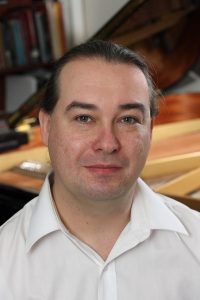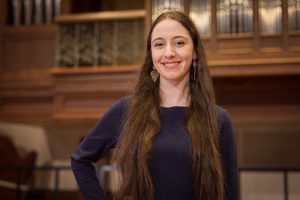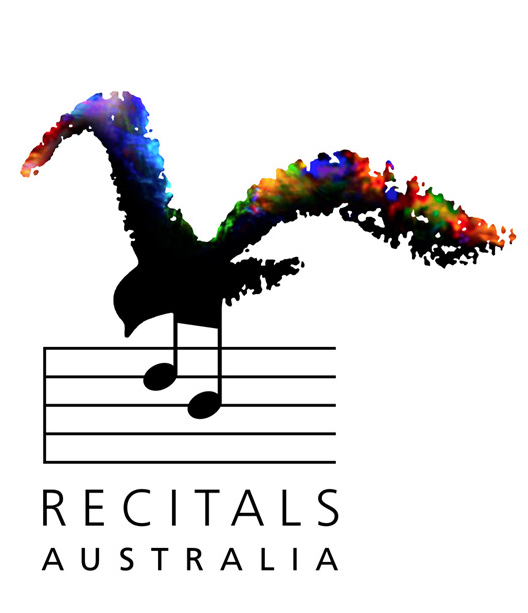Recitals Australia Presents
Alexander Hanysz and Katelyn Crawford
Tynte Street, North Adelaide

Saturday 16 September, 2023
at 2.30pm
for approximately 60 minutes
Madeleine Dring (England, 1923–1977)
Six songs
John Betjeman A Bay in Anglesey
John Betjeman Upper Lambourne
Thomas Otway The Enchantment
Thomas Moore Echoes
Shakespeare Take O take those lips away
Shakespeare The cuckoo
_______

Samuel Barber (America, 1910–1981)
Four songs
Jerzy Harasymowicz trans. Czeslaw Milosz A Green Lowland of Pianos
James Joyce Solitary Hotel
trans. Kenneth Jackson Sea-Snatch (Hermit songs no. 6)
trans. W.H. Auden The Monk and His Cat (Hermit songs no. 8)
_______
Charles Ives (America, 1874–1954)
Six songs
C.G. Rossetti Mirage
Byron from the “Incantation”
Folgore da San Geminiano August
Charles Ives Disclosure
Rupert Brooks Grantchester (with a quotation from Debussy)
Louis Untermeyer from The Swimmers
_______
Kaikhosru Shappurji Sorabji (England, 1892–1988)
Three transcendental studies for piano solo
No. 58, Leggiero (lightly) World premiere performance
No. 56, Moderato World premiere performance
No. 71, Aria Australian premiere performance
_______
Alexander Hanysz writes:
This concert brings together four composers (and fourteen poets!) who represent four different ways of swimming against the current and creating something new. The motivation for this concert is the piano music of Sorabji, which hasn’t been heard in an Australian concert this century. To complement this, we’ve enjoyed choosing a selection of songs which, in different ways, embody aspects of Sorabji’s sometimes refined, sometimes wild beauty and his independence of spirit.
Madeleine Dring is outwardly the gentlest of our quartet. Following on from Vaughan Williams and Quilter, she set texts ranging from Shakespeare (because you’re not allowed to be an English art song composer without Shakespeare) through to poets of her own time such as Betjeman. But she was not a mere follower, and there’s a subtly subversive undercurrent. The songs are based on simple diatonic melodies…but the harmonies and rhythms don’t always cooperate! Rehearsing these pieces, time and time again we found ourselves instinctively taking a wrong turn, then going back for a closer look at how the words and music add up to more than the sum of the parts.
Samuel Barber also has hidden depths beneath a mostly lyrical exterior, although he does have his fierce side too, as we hear today in Sea-Snatch (and if you want more of the same, look out for the piano sonata). In his songs, he had a talent for finding exotic texts and creating powerful effects with very simple means.
Charles Ives is the oldest of our four composers today, but also the most overtly “modern” and radical. Yet he wasn’t trying to shock anyone. He just wrote down the sounds as he heard them in his head, inspired by the world around him –whether that be sounds of nature, or two marching bands at opposite ends of town playing different tunes simultaneously, or a church congregation singing hymns but failing to stay in time…nature isn’t symmetrical or well synchronised, so why should music be? But Ives wrote “No one else seems to hear it the same way. Are my ears on wrong?”
Sorabji was in some ways Ives’s opposite: reclusive rather than outgoing, idealistic rather than practical. But they also have a lot of common ground. Both never heard most of their major works performed during their lifetime, and both refused to be influenced by others’ opinions, staying true to their own ideals. Sorabji takes up where Debussy, Scriabin and Szymanowski left off, taking us into a rich and complex yet dreamy world of exotic harmonies and layered polyrhythms. His collection of 100 Transcendental Studies, unpublished until recently, show that he could write humorous or whimsical miniatures just as well as the colossal sonatas and symphonies that were talked about (but not played) during his lifetime. Thanks are due to Alistair Hinton and the small army of volunteers supporting the Sorabji Foundation for making this music accessible.
